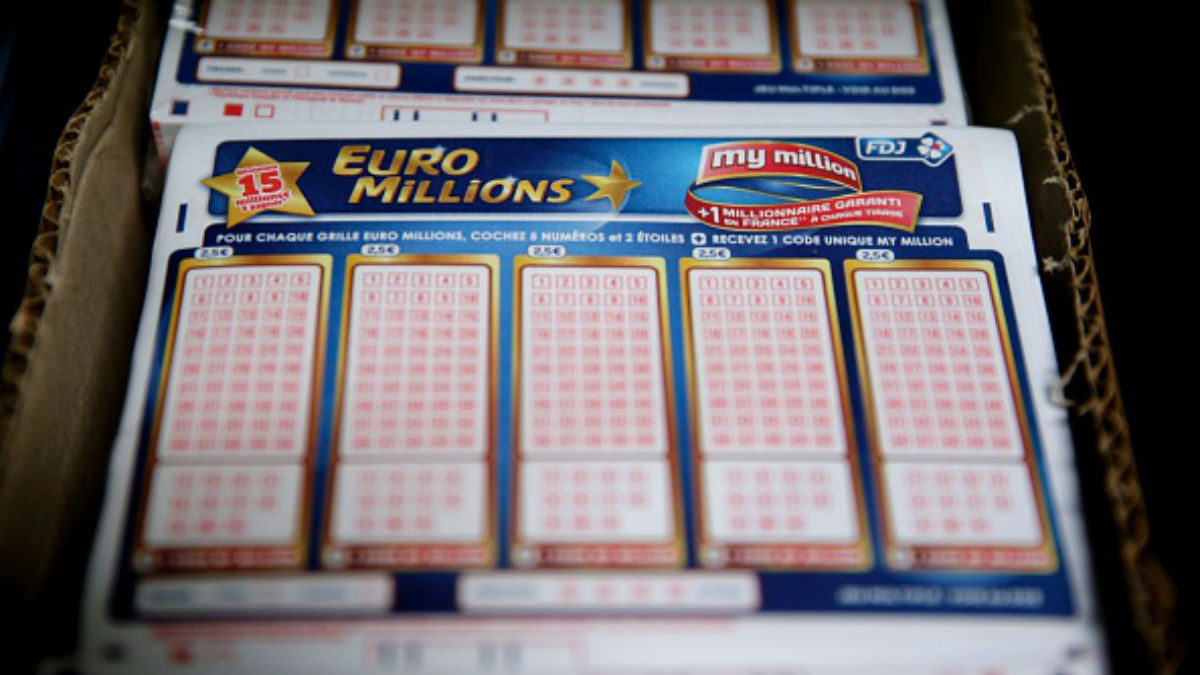Post-Brexit you can still play EuroMillions – and win more
Leaving the EU could see pound hit parity with euro, meaning a bigger prize pot – but it's not all good news

A free daily email with the biggest news stories of the day – and the best features from TheWeek.com
You are now subscribed
Your newsletter sign-up was successful
Issues around the economy, immigration and sovereignty dominated the EU referendum campaign but many voters may were less clear on some other elements of our broader associations with Europe.
And based on Google searches, one of these was what effect leaving the bloc might have on the popular EuroMillions draw.
This could help explain why sales of EuroMillions tickets surged 48 per cent in the wake of the Brexit win, according to online betting provider Lottoland. Britons were looking to "capitalise on what they thought could be the last opportunity to win", it said.
The Week
Escape your echo chamber. Get the facts behind the news, plus analysis from multiple perspectives.

Sign up for The Week's Free Newsletters
From our morning news briefing to a weekly Good News Newsletter, get the best of The Week delivered directly to your inbox.
From our morning news briefing to a weekly Good News Newsletter, get the best of The Week delivered directly to your inbox.
"Don't fret," assures the Mirror. "Just as David Cameron reassured Eurovision fans Britain will still be part of the European song contest in the event of a Brexit, Britons' eligibility to buy EuroMillions tickets will be similarly unaffected."
EU membership is not a requirement of being in the lottery, said a spokesperson for organiser Camelot, pointing out that it is played in Switzerland, a non-EU country.
"The EuroMillions agreement is between the lottery operators in the nine countries [which play] – not the governments," the spokesperson added.
So, you would still be able to place your £2 stake in hope of winning the huge prize sums on offer.
A free daily email with the biggest news stories of the day – and the best features from TheWeek.com
However, the result of 23 June's vote could have an indirect effect on the amount you would actually take home if you were to win.
"EuroMillions prizes are fixed as euro amounts before UK winners receive the equivalent pound sterling value based on the exchange rate at the time of the draw," says Euro-Millions.com.
Put simply, sterling has fallen sharply against the single currency, so you get fewer euros for each pound. But that also means you get more pounds for each euro, making your EuroMillions prize, once exchanged, higher.
If sterling drops against the single currency, you get fewer euros for each pound. Conversely, that also means you get more pounds for each euro so your EuroMillions prize, once exchanged, will be higher.
In this way, a €185m prize in in July 2011 yielded £162m for Chris and Colin Weir. But the following year, when the euro was weaker, Adrian and Gillian Bayford's €190m win netted them just £148.6m.
Sterling has fallen against the euro from €1.31 last Thursday – and as much as €1.45 last year – to less than €1.20 yesterday. And experts believe it will fall further, with UBS and HSBC expecting it to hit parity.
That would mean the jackpot eventually being worth the same in pounds as the fixed euro amount, which last week was €30.4m – significantly more than the £23.4m to which it was actually converted.
There are two caveats here: firstly, not everyone is convinced the pound will fall so low. Bank of America Merrill Lynch argues the euro will be at least as badly hit as sterling by the instability caused in Europe as a whole by the UK leaving the EU.
Secondly, the pound being lower will also increase the cost of bringing goods into the UK, which economists have warned will increase prices. As such, while you may win a lot more if the pound slumps, your money may be worth a lot less.
And given that the odds of winning the jackpot are 116.5 million-to-one, this inflationary effect will be far more pertinent for most people.